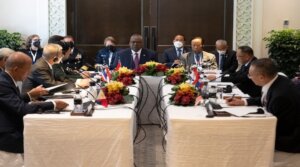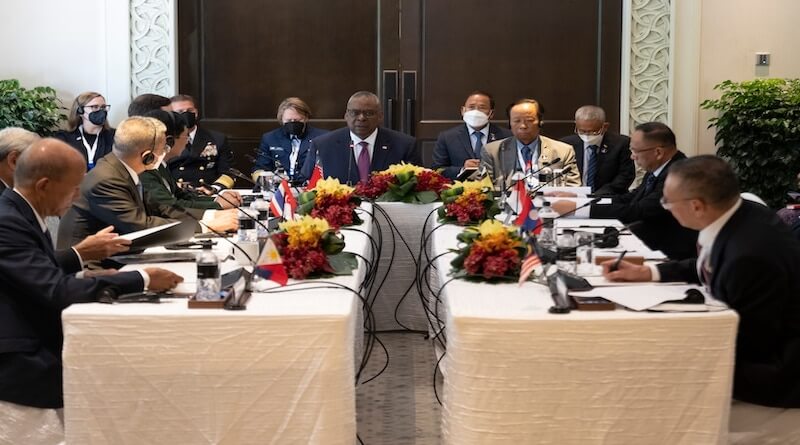US declares its support for allies as China becomes ‘coercive and aggressive’

DHARAMSALA, 11 June: Declaring that the US commitment to a free and open Indo-Pacific is at the heart of American national security strategies, the US Defense Secretary Lloyd Austin has called out China for its coercive and aggressive approach to its territorial claims.
As China is “pushing limits in the East China Sea and the South China Sea” besides its continued efforts to harden its position along the border that it shares with India, Secretary Austin has said at the Shangri-La Dialogue security summit in Singapore that the “Indo-Pacific countries shouldn’t face political intimidation, economic coercion or harassment by maritime militias,” and that the US will stand by its allies.
“We’ll also continue to stand by our friends as they uphold their rights. That’s especially important as the [Peoples Republic of China] adopts a more coercive and aggressive approach to its territorial claims.”
“We will continue to support the 2016 Arbitral Tribunal ruling, and we will fly, sail and operate wherever international law allows,” he said. “And we’ll do so right alongside our partners. And we’ll continue to be candid about the challenges that we all face.”
The US Defense Secretary has further declared that America’s policy is unchanged and unwavering and has been consistent across administrations and that it will maintain its active presence across the Indo-Pacific.
“We’re determined to uphold the status quo that has served this region so well for so long. So let me be clear: We remain firmly committed to our longstanding one-China policy — guided by the Taiwan Relations Act, the three Joint Communiques, and the Six Assurances.”
“We categorically oppose any unilateral changes to the status quo from either side. We do not support Taiwan’s independence. And we stand firmly behind the principle that cross-strait differences must be resolved by peaceful means.”
Austin has also said that the US will continue to fulfil commitments under the Taiwan Relations Act, including assisting Taiwan in maintaining a sufficient self-defence capability.
“And it means maintaining our own capacity to resist any use of force or other forms of coercion that would jeopardise the security or the social or economic system of the people of Taiwan”.
Highlighting growing coercion from Beijing and a steady increase in provocative and destabilising military activity near Taiwan, he has said that the US remain focused on maintaining peace, stability, and the status quo across the Taiwan Strait.
Maintaining peace and stability across the Taiwan Strait isn’t just a US interest. It’s a matter of international concern.”
Though he maintained that the US does not want conflict or confrontation, he added that “We’ll defend our interests without flinching.”
He has also met with his Chinese counterpart Wei Fenghe at the Dialogue.
Shangri-La Dialogue is Asia’s premier defence summit. It’s a unique meeting where ministers debate the region’s most pressing security challenges, engage in important bilateral talks and come up with fresh approaches together.
The ministers at the meeting will discuss and deliberate on Asia’s developing security challenges from 10–12 June 2022.
Additionally, it also features plenary debates led by government ministers, as well as important opportunities for bilateral discussions among delegations.






